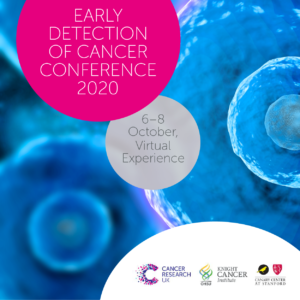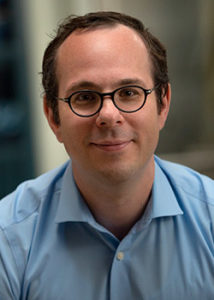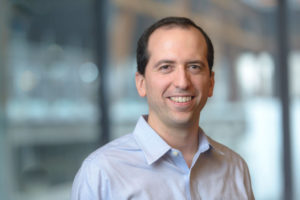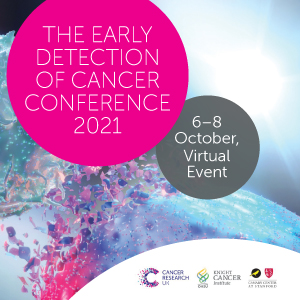
Dear WMIS trainees, colleagues and friends,
We welcome you to join our upcoming virtual WMIS – Stanford Diversity conference on September 9-11, 2020. We are coming together to reinforce our commitment to diversity and to provide a forum for our team members to engage in meaningful discussions. The conference will provide keynote lectures, scientific presentations and educational lectures from leaders and pioneers in the field, who will discuss important topics related to racial justice, women in STEM and Global Health. We are also offering breakout sessions whereby carefully selected individuals will facilitate a discussion about how to implement more supportive and inclusive practices into our daily professional and personal life. The breakout sessions are designed to enable active involvement of smaller groups where people feel safe to discuss current challenges in the STEM field and actionable solutions.
This conference is free of charge and will provide 9.5 CME credits. Abstracts of all conference presentations and a summary of discussion points and insights provided by all conference participants will be published in Molecular Imaging & Biology. The organizing committee will provide 10 trainee prizes in the form of free WMIS memberships to conference attendants for the 2021 WMIC in Miami.
Website: https://www.wmislive.org

Cancer Research UK, OHSU Knight Cancer Institute and the Canary Center at Stanford, present the Early Detection of Cancer Conference series. The annual Conference brings together experts in early detection from multiple disciplines to share ground breaking research and progress in the field.
The Conference is part of a long-term commitment to invest in early detection research, to understand the biology behind early stage cancers, find new detection and screening methods, and enhance uptake and accuracy of screening.
The 2020 conference will take place October 6-8 virtually.
Cancer Research UK, OHSU Knight Cancer Institute and the Canary Center at Stanford, have been closely monitoring developments relating to the coronavirus (COVID-19) outbreak and reviewing guidance from government bodies. After careful consideration, we have made the decision to convert the Early Detection of Cancer Conference 2020 to a virtual conference, instead of the scheduled in-person conference on October 6-8 in London, UK.
For more information visit the website: http://earlydetectionresearch.com/

CEDSS: “The Origins and Detection of Lethal Prostate Cancer”
Paul Boutros, Ph.D., M.B.A.
Director, Cancer Data Sciences
UCLA
Please see zoom details below:
Meeting URL: https://stanford.zoom.us/s/93515779500
Dial: +1 650 724 9799 or +1 833 302 1536
Meeting ID: 935 1577 9500
Meeting Passcode: 767148
ABOUT
Boutros earned his B.Sc. degree from the University of Waterloo in Chemistry in 2004, and his Ph.D. degree from the University of Toronto, Canada, in Medical Biophysics in 2008. At Toronto, he also earned an executive M.B.A. from the Rothman School of Management. In 2008, Boutros started his independent research career at the Ontario Institute for Cancer Research first as a fellow (2008–2010) and then as principal investigator (2010–2018). He moved to California to join the UCLA faculty in 2018.
Hosted by: Utkan Demirci, Ph.D.
Sponsored by the Canary Center & the Department of Radiology
Stanford University – School of Medicine

CEDSS: Systematic identification of fluid-based biomarkers for ovarian and prostate cancer
Thomas Kislinger, Ph.D.
Professor & Chair
Department of Medical Biophysics
University of Toronto
Senior Scientist
Princess Margaret Cancer Centre
Zoom Webinar Details
Meeting URL: https://stanford.zoom.us/s/94878578384
Dial: +1 650 724 9799 or +1 833 302 1536
Webinar ID: 948 7857 8384
Passcode: 692692
Register Here
ABOUT
Thomas Kislinger received his MSc in Analytical Chemistry from the University of Munich, Germany (1998). He completed his PhD in 2001, investigating the role of Advanced Glycation Endproducts in diabetic vascular complications at the University of Erlangen, Germany and Columbia University, New York. Between 2002 and 2006 he completed a post-doctoral fellowship at the University of Toronto. In 2006 he joined the Princess Margaret Cancer Centre as an independent investigator. Dr. Kislinger holds positions as Senior Scientist at the Princess Margaret Cancer Centre and as Professor and Chair at the University of Toronto in the Department of Medical Biophysics. The Kislinger lab applies proteomics technologies to translational and basic cancer biology. This includes the development of novel proteomics methodologies, identification of liquid biopsy signatures and the molecular identification of novel cell surface markers.
Hosted by: Utkan Demirci, Ph.D.
Sponsored by: The Canary Center & the Department of Radiology
Stanford University – School of Medicine

CEDSS: Disseminated cell hybrids as biomarkers for cancer detection, prognosis and treatment response
Melissa Wong, Ph.D.
Associate Professor and Vice Chair
Department of Cell, Development and Cancer Biology
Program Co-Lead, Knight Cancer Institute
Oregon Health & Science University
Zoom Details
Meeting URL: https://stanford.zoom.us/s/98184098662
Dial: US: +1 650 724 9799 or +1 833 302 1536 (Toll Free)
Meeting ID: 981 8409 8662
Passcode: 084321
ABSTRACT
Metastatic progression defines the final stages of tumor evolution and underlies the majority of cancer-related deaths. The heterogeneity in disseminated tumor cell populations capable of seeding and growing in distant organ sites contributes to the development of treatment resistant disease. We recently reported the identification of a novel tumor-derived cell population, circulating hybrid cells (CHCs), harboring attributes from both macrophages and neoplastic cells, including functional characteristics important to metastatic spread. These disseminated hybrids outnumber conventionally defined circulating tumor cells (CTCs) in cancer patients. It is unknown if CHCs represent a generalized cancer mechanism for cell dissemination, or if this population is relevant to the metastatic cascade. We detect CHCs in the peripheral blood of patients with cancer in myriad disease sites encompassing epithelial and non-epithelial malignancies. Further, we demonstrate that in vivo-derived hybrid cells harbor tumor-initiating capacity in murine cancer models and that CHCs from human breast cancer patients express stem cell antigens, features consistent with the ability to seed and grow at metastatic sites. We reveal heterogeneity of CHC phenotypes reflect key tumor features, including oncogenic mutations and functional protein expression. Importantly, this novel population of disseminated neoplastic cells opens a new area in cancer biology and renewed opportunity for battling metastatic disease.
ABOUT
The research focus of the Wong laboratory revolves around understanding the regulatory mechanisms that control epithelial stem cell homeostasis and their expansion in developmental, homeostasis and disease contexts, including cancer. I have substantial training and experience in intestinal stem cell investigation leveraging in vivo and ex vivo modeling, as well as in myriad cutting edge technologies (i.e. cyCIF, scRNA-seq). My publication record spans my post-doctoral fellowship in Dr. Jeffrey Gordon’s laboratory at Washington University School of Medicine, to studies in my own laboratory at Oregon Health & Science University. Our research impacts the understanding of regulatory mechanisms that govern cell state in the context of the evolving tissue microenvironment and changing cell signaling landscape, in development and disease.
Our studies in stem cell regulation led to the intriguing finding that stem cells can fuse with tissue macrophages in the context of injury repair and may impact tissue regeneration. We have extended these findings to the cancer setting, where cancer-macrophage fusions are detectible in primary and metastatic tumors, and my group recently identified and characterized these cells as a novel circulating tumor cell population. Importantly, our studies in cell culture, in mice and humans provide an indepth evaluation of hybrid cells to set the foundation for continued investigations into their biology, impact on disease progression or tissue regeneration, and use as a biomarker for disease burden. Importantly, we coined the term, circulating hybrid cell (CHC) for this novel population and reported they exist at higher levels than conventionally defined circulating tumor cells in the peripheral blood of cancer patients. This work was published in 2018 and highlighted by Science Magazine as one of the top ten publications in the cancer field in the science family journals. The science proposed in this U01 application leverage hybrid cell biology to assess treatment response and resistance in breast cancer patients undergoing targeted therapy. Our proposal leverages active collaborations with Dr. Young Hwan Young’s group to synergize biology with computation, as well as a number of other valuable collaborators to ensure success of the proposed, cutting-edge science.
Hosted by: Utkan Demirci, Ph.D.
Sponsored by: The Canary Center & the Department of Radiology
Stanford University – School of Medicine

Targeted violence continues against Black Americans, Asian Americans, and all people of color. The department of radiology diversity committee is running a racial equity challenge to raise awareness of systemic racism, implicit bias and related issues. Participants will be provided a list of resources on these topics such as articles, podcasts, videos, etc., from which they can choose, with the “challenge” of engaging with one to three media sources prior to our session (some videos are as short as a few minutes). Participants will meet in small-group breakout sessions to discuss what they’ve learned and share ideas.
Please reach out to Marta Flory, flory@stanford.edu with questions. For details about the session, including recommended resources and the Zoom link, please reach out to Meke Faaoso at mfaaoso@stanford.edu.

CEDSS: “Building a Scalable Clinical Genomics Program: How tumor, normal, and plasma DNA sequencing are informing cancer care, cancer risk, and cancer detection”
Elizabeth and Felix Rohatyn Chair & Associate Director of the Marie-Josée and Henry R. Kravis Center for Molecular Oncology
Memorial Sloan Kettering Cancer Center
Zoom Details
Meeting URL: https://stanford.zoom.us/s/92559505314
Dial: US: +1 650 724 9799 or +1 833 302 1536 (Toll Free)
Meeting ID: 925 5950 5314
Passcode: 418727
11:00am – 12:00pm Seminar & Discussion
RSVP Here
ABSTRACT
Tumor molecular profiling is a fundamental component of precision oncology, enabling the identification of oncogenomic mutations that can be targeted therapeutically. To accelerate enrollment to clinical trials of molecularly targeted agents and guide treatment selection, we have established a center-wide, prospective clinical sequencing program at Memorial Sloan Kettering Cancer Center using a custom, paired tumor-blood normal sequencing assay (MSK-IMPACT), which we have used to profile more than 50,000 patients with solid tumors. Yet beyond just the characterization of tumor-specific alterations, the inclusion of blood DNA has readily enabled the identification of germline risk alleles and somatic mutations associated with clonal hematopoiesis. To complement this approach, we have also implemented a ‘liquid biopsy’ cfDNA panel (MSK-ACCESS) for cancer detection, surveillance, and treatment selection and monitoring. In my talk, I will describe the prevalence of somatic and germline genomic alterations in a real-world population, the clinical benefits of cfDNA assessment, and how clonal hematopoiesis can inform cancer risk and confound liquid biopsy approaches to cancer detection.
ABOUT
Michael Berger, PhD, holds the Elizabeth and Felix Rohatyn Chair and is Associate Director of the Marie-Josée and Henry R. Kravis Center for Molecular Oncology at Memorial Sloan Kettering Cancer Center, a multidisciplinary initiative to promote precision oncology through genomic analysis to guide the diagnosis and treatment of cancer patients. He is also an Associate Attending Geneticist in the Department of Pathology with expertise in cancer genomics, computational biology, and high-throughput DNA sequencing technology. His laboratory is developing experimental and computational methods to characterize the genetic makeup of individual cancers and identify genomic biomarkers of drug response and resistance. As Scientific Director of Clinical NGS in the Molecular Diagnostics Service, he oversees the development and bioinformatics associated with clinical sequencing assays, and he helped lead the development and implementation of MSK-IMPACT, a comprehensive FDA-authorized tumor sequencing panel that been used to profile more than 60,000 tumors from advanced cancer patients at MSK. The resulting data have enabled the characterization of somatic and germline biomarkers across many cancer types and the identification of mutations associated with clonal hematopoiesis. Dr. Berger also led the development of a clinically validated plasma cell-free DNA assay, MSK-ACCESS, which his laboratory is using to explore tumor evolution, acquired drug resistance, and occult metastatic disease. He received his Bachelor’s Degree in Physics from Princeton University and his Ph.D. in Biophysics from Harvard University.
Hosted by: Utkan Demirci, Ph.D.
Sponsored by: The Canary Center & the Department of Radiology
Stanford University – School of Medicine

CME Grand Rounds Sanjiv Sam Gambhir Lectureship – “Imaging at the Speed of Light: Innovations in Positron Emission Tomography”
Simon R. Cherry, PhD
Professor
Biomedical Engineering & Radiology
UC Davis
Join from PC, Mac, Linux, iOS or Android: https://stanford.zoom.us/j/600003703?pwd=RjcwS2MvOG1qVkxyL3U0RmNtUDVWdz09
Meeting ID: 600 003 703
Password: 566048
Or iPhone one-tap (US Toll): +18333021536,,600003703# or +16507249799,,600003703#
Or Telephone:
Dial: +1 650 724 9799 (US, Canada, Caribbean Toll) or +1 833 302 1536 (US, Canada, Caribbean Toll Free)
International numbers available: https://stanford.zoom.us/u/acuqphnvqT
ABSTRACT
Positron emission tomography (PET) allows for sensitive and quantitative measurement of physiology, metabolism and molecular targets noninvasively in the human body. However, typical clinical PET scanners capture less than 1% of the available signal produced in the body. PET scanners also are not currently capable of precisely determining the location at which a particular decay occurs. These limitations present opportunities for further innovation that ultimately will impact molecular imaging research and diagnostic imaging with PET. This presentation focuses on 1) total-body PET imaging which greatly improves signal collection, allowing radiotracer kinetics to be assessed across the entire human body for the first time, and 2) the development of detector technologies that have a timing precision of ~ 30 picoseconds, enabling direct localization of radiotracer decays without tomographic reconstruction.
BIO
Simon R. Cherry, Ph.D. received his B.Sc.(Hons) in Physics with Astronomy from University College London in 1986 and a Ph.D. in Medical Physics from the Institute of Cancer Research, University of London in 1989. After a postdoctoral fellowship at UCLA, he joined the faculty in the Department of Molecular and Medical Pharmacology, also at UCLA, in 1993. In 2001, Dr. Cherry joined UC Davis and established the Center for Molecular and Genomic Imaging, which he directed from 2004-2016. Currently Dr. Cherry is Distinguished Professor in the Departments of Biomedical Engineering and Radiology at UC Davis.
Dr. Cherry’s research interests center around biomedical imaging and in particular the development and application of in vivo molecular imaging systems. His major accomplishments have been in developing systems for positron emission tomography (PET), in particular the invention of the microPET technology that was subsequently widely adopted in academia and industry and as co-leader of the EXPLORER consortium which has developed the world’s first total-body PET scanner. He also has contributed to detector technology innovations for PET, conducted early biomedical studies using Cerenkov luminescence, and developed the first proof-of-concept hybrid PET/MRI (magnetic resonance imaging) systems.
Dr. Cherry is a founding member of the Society of Molecular Imaging and an elected fellow of six professional societies, including the Institute for Electronic and Electrical Engineers (IEEE) and the Biomedical Engineering Society (BMES). He served as Editor-in-Chief of the journal Physics in Medicine and Biology from 2011-2020. Dr. Cherry received the Academy of Molecular Imaging Distinguished Basic Scientist Award (2007), the Society for Molecular Imaging Achievement Award (2011) and the IEEE Marie Sklodowska-Curie Award (2016). In 2016, he was elected as a member of the National Academy of Engineering and in 2017 he was elected to the National Academy of Inventors. Dr. Cherry is the author of more than 240 peer-reviewed journal articles, review articles and book chapters in the field of biomedical imaging. He is also lead author of the widely-used textbook “Physics in Nuclear Medicine”.

CME Grand Rounds Diversity Lectureship – Topic: TBD
Jennifer L. Eberhardt, PhD
Professor
Psychology
Stanford University
Join from PC, Mac, Linux, iOS or Android: https://stanford.zoom.us/j/600003703?pwd=RjcwS2MvOG1qVkxyL3U0RmNtUDVWdz09
Meeting ID: 600 003 703
Password: 566048
Or iPhone one-tap (US Toll): +18333021536,,600003703# or +16507249799,,600003703#
Or Telephone:
Dial: +1 650 724 9799 (US, Canada, Caribbean Toll) or +1 833 302 1536 (US, Canada, Caribbean Toll Free)
International numbers available: https://stanford.zoom.us/u/acuqphnvqT
ABSTRACT
Coming soon!
BIO
Coming soon!

Cancer Research UK, OHSU Knight Cancer Institute and the Canary Center at Stanford, present the Early Detection of Cancer Conference series. The annual Conference brings together experts in early detection from multiple disciplines to share ground breaking research and progress in the field.
The Conference is part of a long-term commitment to invest in early detection research, to understand the biology behind early stage cancers, find new detection and screening methods, and enhance uptake and accuracy of screening.
The 2021 conference will take place October 6-8 virtually. For more information visit the website: http://earlydetectionresearch.com/